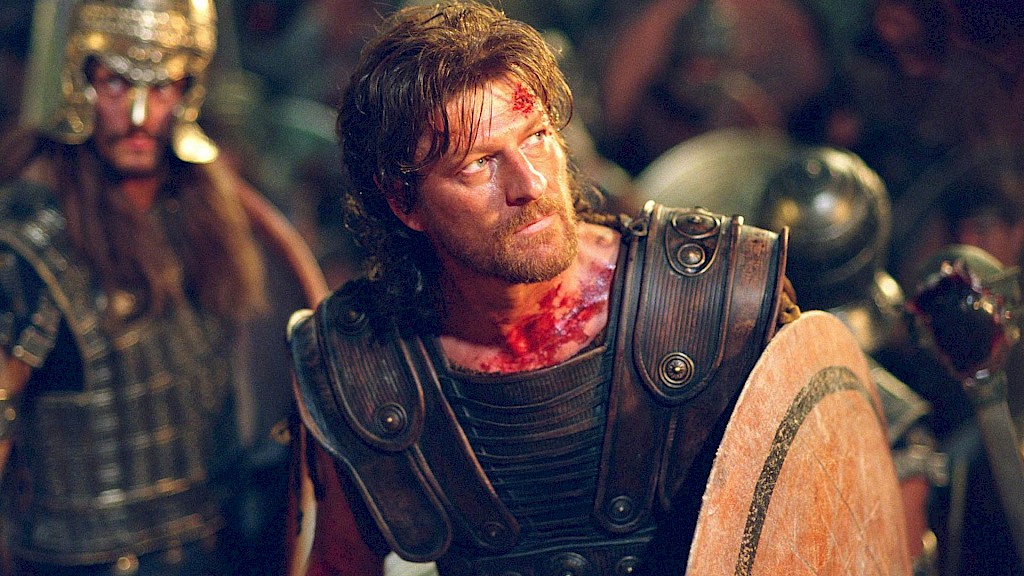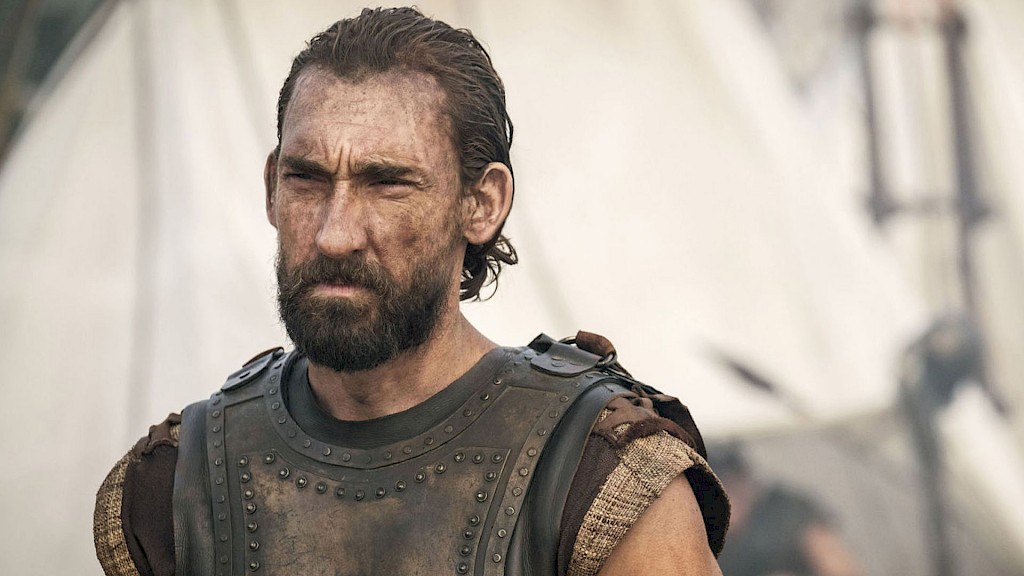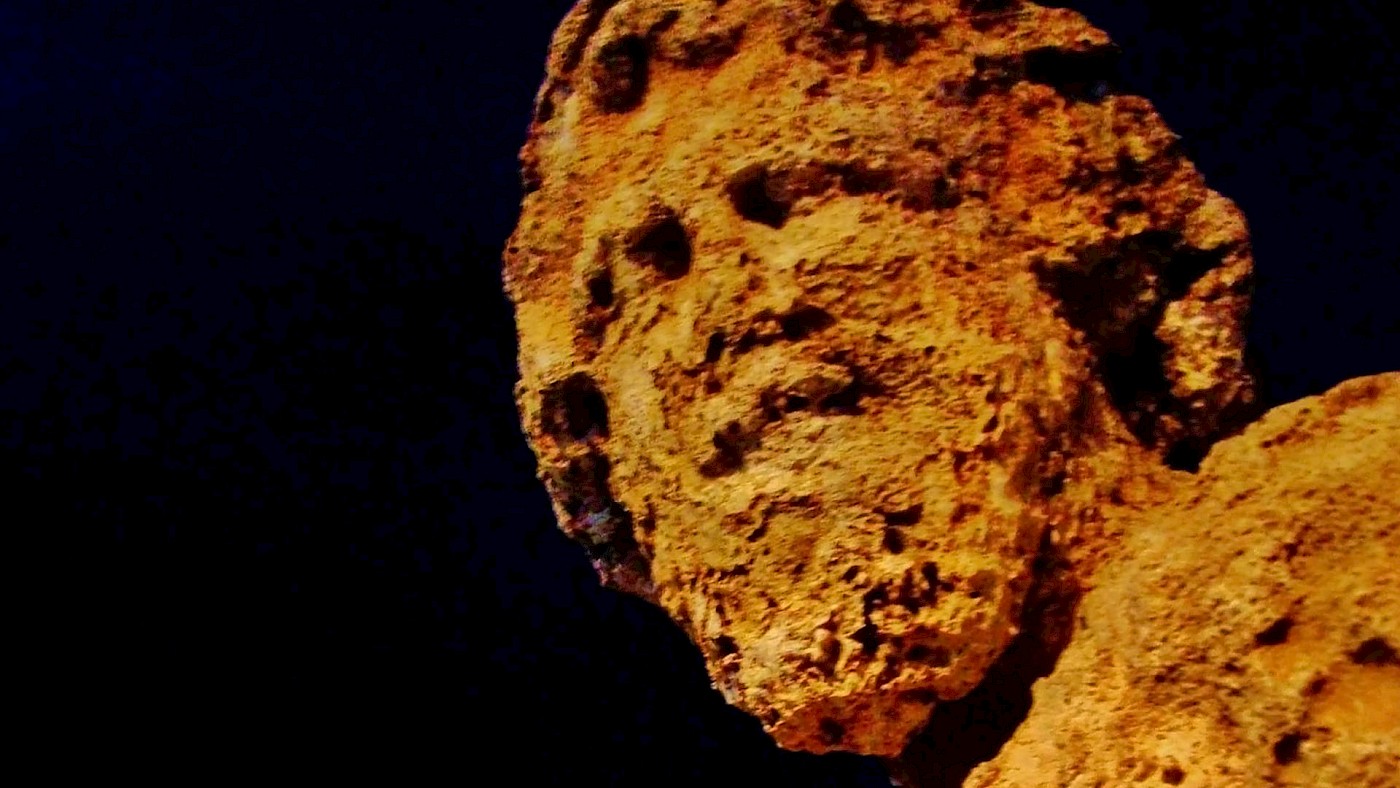Here at Ancient World Magazine we’ve been reflecting on Odysseus a lot lately. With Josho’s reminders of Odysseus’ malicious deeds and foolhardy decision-making, I find myself in the position of Athena, feeling I ought to protect the wily Greek hero.
Compared to the other Greek warriors at Troy, Odysseus stands up reasonably well. He isn’t chasing after a woman who rejected him, like Menelaus (depending on how you read Helen’s motivations, of course); his story doesn’t rely on sexual violence, like Agamemnon, Achilles, and the lesser Ajax; he might smile as Dolon is decapitated, but it’s Diomedes who does the deed. Odysseus’ actions may often be grim, but he’s in grim company.
But as I thought about it, I realised that I do think that Odysseus is a jerk and I have done so for quite a while. I’ve had the same observations about him beating Thersites, sleeping with Circe, and murdering the maids. Even if he were the best behaved of the Greeks at Troy that’s not saying a great deal.
So why, then, do I think so fondly of Odysseus? What allows him to be so well regarded in the modern world? Should we reassess how we judge this character?
Starting point
Two observations serve as a starting point for this discussion.
The first is spoken by Odysseus himself in Madeline Miller’s The Song of Achilles, towards the end of the novel as he speaks with Achilles’ son Pyrrhus: “Perhaps one day even I will be famous. Perhaps more famous than you” (Miller 2011, p. 364). It is perhaps a little blunt, but there is a point: we in the modern world recognise Odysseus; he has become the more famous.
Miller doesn’t shy away from Odysseus’ misdeeds in The Song of Achilles, nor in her second novel, Circe, which was released earlier this month. Yet the hero still comes across as charismatic; and as any reader of the Odyssey will know, he and Circe have a sexual relationship. Miller’s Circe thinks of him affectionately (unlike Patroclus, the narrator of her debut).
It is only on reflection, as she comes to tell her son about his father, that Circe re-evaluates Odysseus’ stories: “What I had thought of as adventure now seemed blood-soaked and ugly” (Miller 2018, p. 262).
Indeed, Odysseus’ enduring appeal to the modern audience may be best summed up by the adjective Emily Wilson uses to describe him in the opening line of her recent translation of the Odyssey: complicated.
The return of Odysseuses
In any retelling of the Trojan War that focuses on the men involved, Odysseus is often the hook onto which our sympathies are hung. Many of the aspects of his story encourage empathy: he’s resistant to joining the war and tries to get out of it; his methods throughout are (seemingly) less violent and more cunning; he (apparently) yearns for his wife and child on his long journey home.
I know that I would rather not go to war; would rather avoid violence with cunning; and I know how I’ve felt when I’ve been separated from my family by forces beyond my control. Devoid of the gruesome details, it’s easy to see why Odysseus’ story is attractive to the modern eye.
And modern writers have clearly drawn inspiration from his tale. As we’ve discussed elsewhere on Ancient World Magazine, Odysseus’ story has been retold in a myriad of ways since the Odyssey became a fixed entity around 700 BC. Some such stories are adaptations crafted around the shape of the Odyssey rather than retellings; these include Virgil’s Aeneid, in which Ulysses is far from a sympathetic hero. Indeed, the Odyssey itself may have been adapted from an earlier Argonautica, telling the tale of the even more despicable Jason.
More recently, the Odyssey has formed the outline for a number of science fiction and fantasy stories. This is hardly surprising, for as Ursula K. Le Guin observed the Homeric epics are the two basic fantasy plots: the Iliad is the war; the Odyssey the return, or there and back again (Le Guin 2017).
In these cases, the Odysseus-like character can diverge greatly from the hero himself: in the Star Trek: Voyager episode “The Q and the Grey” (s3ep11) Captain Janeway flatly refuses to have a child with the god-like being Q; while on his return to Toad Hall in Kenneth Grahame’s The Wind and the Willows, Mr Toad does not proceed to slaughter any maids. These are odysseys rather than Odysseuses; they reflect on the appeal of the story, rather than the appeal (or otherwise) of the man.
A complicated man
Of the handful of Greek heroes at Troy widely known in the modern world, it is difficult to see who else could serve as a sympathic hook for the modern audience. Wolfgang Petersen’s Troy (2004) struggles with making Achilles sympathetic for the modern audience, because his concerns are so alien to us – Le Guin again: “his big snit is over a girl he was given to rape but has to give back to his superior officer, which to me rather dims the love story” (2017, p. 56).
In The Song of Achilles, Madeline Miller manages to make Achilles tolerable by giving us his lover Patroclus’ perspective and by removing any sexual element of his relationship with Briseis; Troy: Fall of a City (2018) goes one step further and makes all three – Achilles, Patroclus, Briseis – lovers.
But one cannot escape the fact that Briseis is a captive; we should be very uncomfortable with accepting their relationship. Odysseus is also privileged because his story offers sequel potential – more so than the disastrous return of Agamemnon or the potentially awkward homecoming of Menelaus and Helen.

Why does it matter that we have a Greek with whom to sympathise? Surely it is possible to look at the Trojan War and take the Trojan’s side, or to dismiss the whole thing as a huge mistake. But this, I think, undermines the power of the story. If we despise all the Greeks for their imperial ambitions and place the pious Trojans on a pedestal (ignoring all the impiety that has led them to this position), as is somewhat the case in Troy, then the war becomes unbalanced.
Le Guin argued: “The Trojan War is not and you cannot make it be the War of Good vs. Evil. It’s just a war, a wasteful, useless, needless, stupid, protracted, cruel mess full of individual acts of courage, cowardice, nobility, betrayal, limb-hacking-off, and disembowelment” (2017, pp. 53-54). Without a sympathetic hook on the Greek side, the Trojan War risks becoming the War of Good vs. Evil. Evil wins this time, but it’s still that war.
But Odysseus himself is not always straightforwardly sympathetic. In Troy: Fall of a City, he is a reluctant participant in the war, but he does plenty of gruesome things to ensure the Greek victory. As in Troy, we are sometimes given the impression that he does so under orders; but nevertheless, as in The Song of Achilles, he acquiesces to Artemis’ demand to sacrifice Iphigenia without resistance. At our most generous we might suggest that he does so in the belief that, as he does when Diomedes (in this version) places his daughter (in this version) in front of his plough, Agamemnon will give up when pushed to murder to his own child. But the show does nothing to encourage that interpretation.
Literature is often more unforgiving of Odysseus than television or film. Margret Atwood certainly does not take a pro-Odysseus stance in The Penelopiad (2005), written from the perspective of Penelope and the murdered maids. Atwood’s Penelope states outright that she suspects Odysseus may never have loved her – and even that he preferred Helen.
More damning is not only the emphasis placed on the societal constraints on women, noble and servile, but also Atwood’s decision to make the twelve maids Penelope’s confidants, unknown to Telemachus and Odysseus. Both elements emphasise the tragedy of their murder; both serve to show that Odysseus is worse than we think.
Madeline Miller takes a more ambivalent approach. In The Song of Achilles, Odysseus appears the reluctant trickster, caught out by his oath and in his attempt to escape it. Nine-year old Patroclus recognises him as “too clever by half”, and he later condemns him for his role in the worst act of the Greek mission – such as the sacrifice of Iphigenia. Yet in this novel Miller still presents his insight and trickery as largely admirable; she also has Diomedes tease him about how much he loves Penelope. It is still to him that Patroclus turns in his attempt to escape limbo.
In Circe, Miller reassesses this perspective on the hero. For the eponymous witch, Odysseus is exactly the kind of person she needs when he arrives – another broken individual, struggling to come to terms with the atrocities he has committed and those that have been committed against him. This Odysseus knows that Patroclus did not like him, and comments “the good ones never do” (Miller 2018, p. 211).
But Miller never quite gives us Odysseus’ perspective – he is an enigma; he’s always lying, even to himself. Telemachus and Penelope experience him very differently to Circe; how his experiences have shaped him, damaging him with “the curse of soldiers”, or bringing out his true self. Most importantly, she throws Odysseus’ reluctance to go to Troy into question. In Miller’s novel as in the modern world, Odysseus is complicated.

In a recent article for Tor.com, Emily Asher-Perrin explored the problems with revisionist ideas that cast Robin Hood as a member of the nobility fallen on hard times. The trope of the fallen aristocrat, down on his luck but still pure of heart, is one that we can trace back at least as far as the Odyssey.
Miller’s Circe begins to realise this too: “Odysseus had endless patience for Agamemnon’s caprice, but with those beneath him he could be harsh as winter storms.” (2018, p. 290). Troy: Fall of a City follows the Iliad in making Thersites a person whose ugliness reveals his character, complicit in the idea that he is somehow lesser; Miller offers no perspective on the character of Thersites, but rather shows us what Odysseus’ treatment of him reveals of the character of the noble hero: “It might even have been a pleasure of sorts, to squash some little complaining soul who dared to stand in the way of the Best of the Greeks.”
For Circe, as for the modern reader, it is important that there be a revelation, a peeling back of the layers that allow us to see how harmful Odysseus is. When new evidence comes to light, when presented with a new perspective, we must be prepared to reassess men we admire, even if this does not match our own experience of him.
Another observation of Miller’s Odysseus deserve recognition here. In trying to persuade Pyrrhus to allow Patroclus to be recognised alongside Achilles, he states: “What is admired in one generation is abhorred in another” (2012, p. 363) The actions of the Homeric heroes are often abhorred in the modern world, with certain exceptions – Odysseus, but also Hector – escaping much of the scrutiny applied to their comrades because this generation admires their other actions and can focus on those.
Although Miller, in Circe, shows that subsequent generations do not always admire Odysseus; his actions require reassessment, our admiration requires criticism.
Concluding thoughts
Among the many responses to Josho’s article “Odysseus the jerk”, one in particular stood out. In a series of Tweets, I was assured that Odysseus’ behaviour was normal for Mediterranean men of antiquity and that anyone reading the Odyssey now, rather than relying on modern adaptations or retellings, would be able to tell that he was a bad man.
It is an oft-quoted maxim, with no empirical support of which I am aware, that if one’s bad deeds are on display people will be able to judge for themselves; that people know automatically what is right and what is wrong. We do not need to reassess our viewpoints or have others do so; if they are wrong we will realise.
The lot of the heroes of myth is retelling. Their stories were retold and reinvented as oral epic poetry; as drama; as history. These retellings highlight different aspects of their personas, different perspectives of them, to resonate in the times that they are told, and the contexts in which they are told. But in retelling there is also reassessment; the teller choses what to emphasise and what to elide; what was abhorred in one generation is admired in another – and vice versa.
In the modern world we want a variety of heroes. We sometimes want a character with whom we can sympathise without worrying too much about his wider adventures, because the hero is difficult, or dies, and the enemy looks a little too heroic, a hero with sequel or spin-off potential – the Odysseus of Troy (2004). But we sometimes want a hero with who is more complicated than that. Who escapes by trickery and is worn down by his adventures; who is not without flaws and who does what appears to be necessary, often unwillingly – the Odysseus of Troy: Fall of a City.
This is not to say that it reflects well on us to admire Odysseus, or even to believe that “doing what is necessary” is a good trait in a hero. Odysseus’ actions lead to great harm to his men, none of whom return home, to his family, whom he abandons for twenty years, and to Ithaca, which loses a generation of young men through his actions. We almost never want to hear that our hero has done great harm to others; that his (it is almost always his) actions were not so heroic; that, from another perspective he is the villain.
Stories like Miller’s, that engage critically with Odysseus’ actions and how they impact on others – both positively and negatively – are essential to how we construct this character in the twenty-first century AD. They are also a guide to how we should reassess the actions of other men once deemed heroic, whose actions we are asked to reassess.
Further reading
- Margaret Atwood, The Penelopiad (2005).
- Ursula K. Le Guin, No Time to Spare: Thinking About What Matters (2017).
- Madeline Miller, The Song of Achilles (2011).
- Madeline Miller, Circe (2018).
